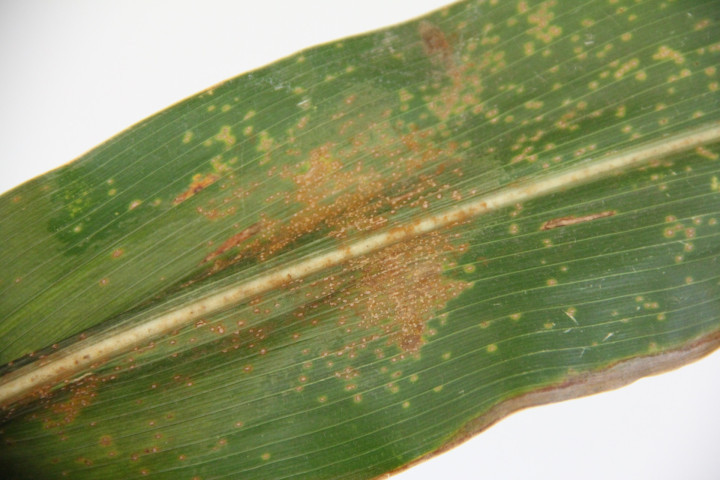
Dr. Bob Kemerait shared an update this afternoon confirming that Southern Corn Rust has been identified in Wayne County by ANR Agent Mark Frye. Photos submitted from the field (attached) verify the presence of the disease in East Georgia.
At this point, Southern Rust appears to be at low levels, but it could be present across much of South Georgia. With current weather conditions highly favorable for infection and spread, timely scouting and management are critical.
In Southeast Georgia, disease pressure remains low for now, but conditions are favorable for rapid development. Many corn fields in the region are 2–3 weeks away from the hard dough stage, at which point Southern Rust is generally considered to have limited impact on yield. After this stage, economic returns from fungicide applications are rarely observed.
However, there are exceptions to this general guideline:
- Highly susceptible varieties may still benefit from treatment beyond the hard dough stage if disease pressure is increasing.
- Later-planted corn that is still in earlier growth stages remains at higher risk and should be evaluated separately from earlier plantings.
Fungicide Guidance from Dr. Kemerait:
- Single mode of action products (e.g., strobilurins alone) provide approximately 2 weeks of protection.
- Mixed mode of action products (e.g., strobilurin + triazole or SDHI combinations) can provide up to 3 weeks of protection.
Action Items for Growers:
- Scout fields regularly, especially corn in the late vegetative or early reproductive stages, such as tasseling (VT) or silking (R1).
- Review the susceptibility of your corn hybrids—some varieties have very little resistance to Southern Rust and will be more severely impacted than those with partial resistance.
- Contact your aerial applicators (crop dusters or drone services) ahead of time to determine how quickly they can get to your farm if a spray is needed.
- Check the fungicide label for minimum GPA (gallons per acre) requirements. Many drone applications are made at 1.5–2 GPA, but some products may require 3 GPA or more for adequate coverage.
- Be aware: Applying at higher GPA rates will take more time, and applicators may charge an additional fee for these services.
If you see something in your field that looks suspicious, please contact me or your local Extension agent to get a sample checked. Confirmed cases are reported to a statewide monitoring map maintained by UGA Extension to help keep growers across Georgia informed of disease activity and movement.
For a helpful reference, the 2025 Corn Fungicide Efficacy Chart is available here:
🔗 Corn Foliar Fungicide Efficacy – 2025 (Crop Protection Network)
Please don’t hesitate to reach out with questions.